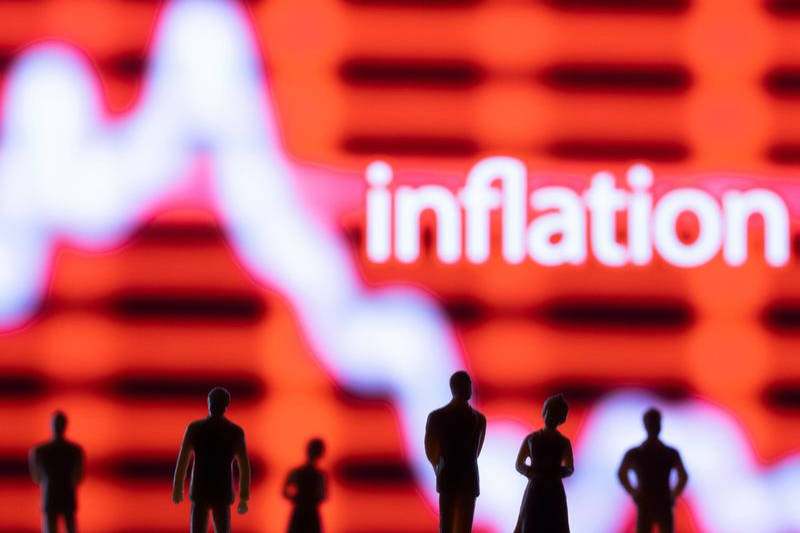Bitcoin price today: gains to $120k, near record high on U.S. regulatory cheer
Investing.com -- The U.K.’s inflation rate jumped to 3% in January, surpassing economists’ forecasts, according to data from the Office for National Statistics (ONS) on Wednesday.
Economists surveyed by Reuters had predicted inflation would come in at 2.8% over the twelve months to January. Services inflation, which the Bank of England (BoE) previously flagged as a concern, rose to 5%, up from 4.4% in December, though was below the estimated 5.2% increase.
Consumer prices had eased to 2.5% in December, lower than expected, with core inflation also moderating. However, the latest data showed core inflation, which strips out energy, food, alcohol, and tobacco, rose to 3.7% in January from 3.2% the previous month. The annual core services rate also climbed from 4.4% to 5.0%, the ONS reported.
The agency attributed the increase to higher food costs, particularly meat, bread, and cereals, alongside a rise in private school fees following the removal of a government VAT exemption.
While airline ticket prices declined, they did not fall as much as usual. Combined with an uptick in fuel costs, this pushed transport inflation to its highest level since February 2023.
ING economists said the latest UK inflation numbers “are better for the Bank of England than they look at first glance.”
“What really matters is service sector inflation, and here the news is getting better. Admittedly services CPI did rebound up to 5%, though that was lower than expected and followed an artificially low reading in December,” they noted.
ING economists noted that airfares did not fully reflect the typical holiday price surge but emphasized that they are not a key factor for monetary policy.
They highlighted that a measure of “core services” inflation, which excludes volatile items like airfares, package holidays, and rents, has been declining.
There is no official measure of core services inflation, but by ING’s calculations, this gauge has fallen to 4.2% from 4.7% two months ago, and the bank expects this downtrend to continue.
Inflation in the U.K. had reached a three-year low of 1.7% in September but has been edging higher in recent months.
Earlier this month, the BoE delivered its first rate cut of the year, lowering its benchmark interest rate to 4.5% amid sluggish economic growth and easing inflation.
The central bank indicated that additional cuts are likely but cautioned that higher global energy costs and regulated price changes are likely to drive headline inflation to 3.7% in the third quarter of 2025, despite the anticipated decline in underlying domestic inflationary pressures. The BOE projects inflation will return to its 2% target by 2027.
Capital Economics strategists said this expected uptick in inflation is unlikely to prevent the BoE from cutting interest rates further. “But it will mean it continues to cut rates only slowly,” they added.
